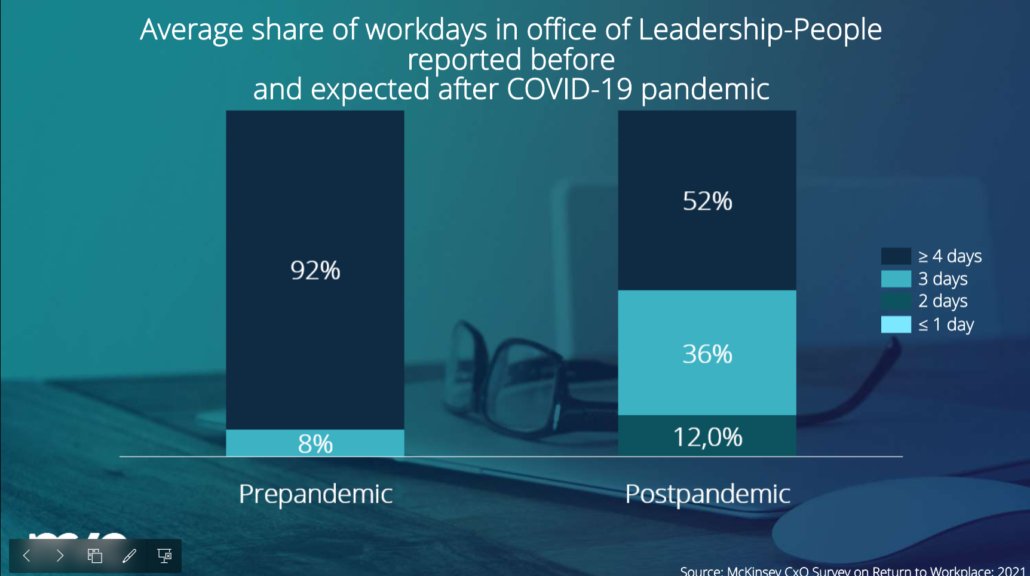Studies by Accenture and McKinsey show a clear discrepancy between the wishes of managers and those of employees. 83 percent of employees would like to continue to spend the majority of their working time in the home office. The majority of the survey participants see the plus points primarily in security, increased quality of life and the freedom gained in the home office. The plus points for the office are above all the better equipment, the contact and interaction with colleagues and the routine provided by working in the office.
And the bosses? – They prefer to be in the office
64 percent of bosses want to be in the office 4 or 5 days a week. But here, too, there has been a change of heart. Before the pandemic, it was still 92 percent who voted for an absolute presence culture. Many managers are not only concerned about the threatened loss of control, among other things because micromanagement is very difficult in the home office. There are also concerns about the preservation of the company culture and the further education and training of employees.
Human resources experts say that the behaviour of managers determines the success of hybrid working. This is true in terms of acceptance but also in terms of rewards and promotions. Many employees fear that managers prefer those colleagues they perceive around them in the office.
The development of a willingness to change among employees that has grown in the pandemic also remains exciting. According to Mc-Kinsey, workers are leaving companies at a much higher rate than usual. Recent surveys found that 26 per cent of workers in the United States are already preparing to look for a new job and 40 per cent of workers worldwide are considering leaving their current employer by the end of the year. This raises the question of how company culture and possibly benefits such as hybrid working can help employees stay? And what are the reasons for employees’ willingness to change?



